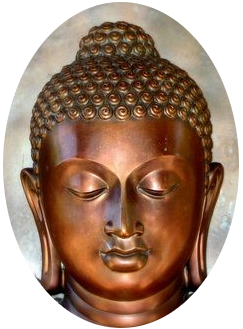OUR LINEAGE
The Thai Forest tradition is the branch of Theravada Buddhism in Thailand that most strictly holds the original monastic rules of discipline laid down by the Buddha. The Forest tradition also most strongly emphasizes meditative practice and the realization of enlightenment as the focus of monastic life.
Forest monasteries are primarily oriented around practising the Buddha’s path of contemplative insight, including living a life of discipline, renunciation, and meditation in order to fully realize the inner truth and peace taught by the Buddha. Living a life of austerity allows forest monastics to simplify and refine the mind. This refinement allows them to clearly and directly explore the fundamental causes of suffering within their heart and to inwardly cultivate the path leading toward freedom from suffering and supreme happiness. Living frugally, with few possessions fosters for forest monastics the joy of an unburdened life and assists them in subduing greed, pride, and other taints in their minds.
Forest monastics live in daily interaction with and dependence upon the extended community. While the laity provide the material supports for their renunciant life, such as almsfood and cloth for robes, the monastic Sangha serves as a resource for spiritual inspiration and guidance. The conduct of Forest monks is governed by 227 protocols which include total celibacy, eating only between dawn and noon and abstaining from handling money. They also commonly engage in a practice known as ‘tudong’ in which they wander on foot through the countryside either on pilgrimage or in search of solitary retreat places in nature. During such wanderings, monks sleep wherever is available and eat only what is offered by laypeople along the way.

All in the Family
